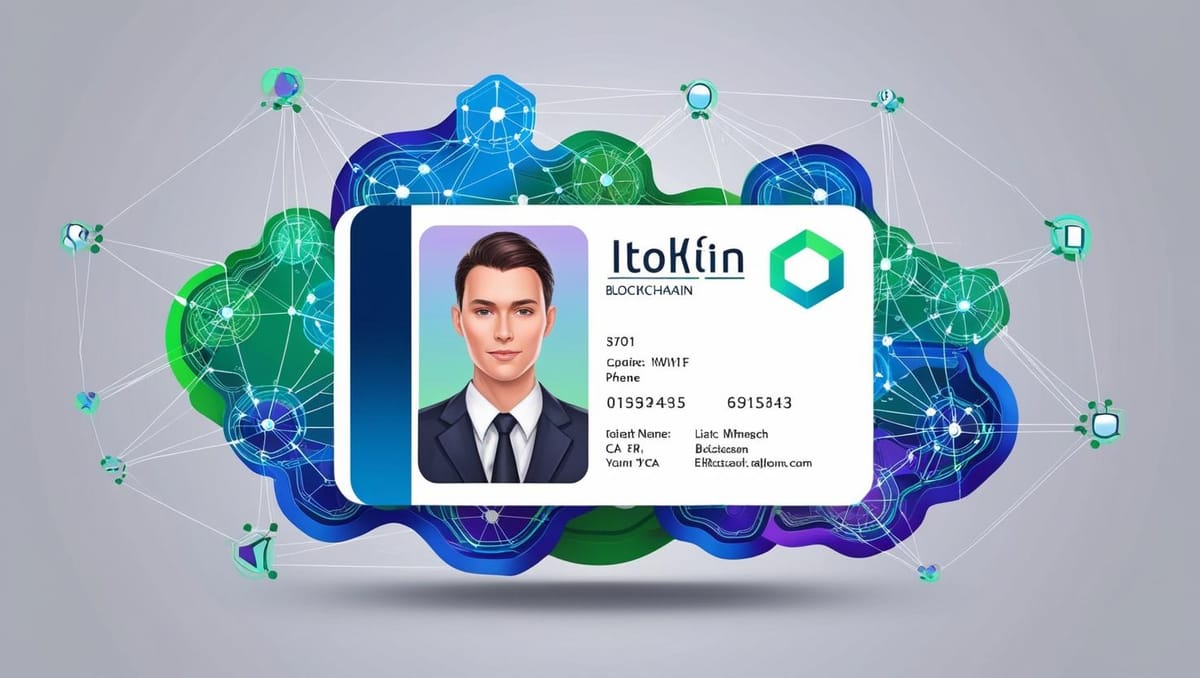Decentralized Identity on Blockchain: A New Era of Privacy and Security

In an increasingly interconnected digital world, identity has become a valuable commodity. From accessing financial services to verifying online accounts, digital identities are integral to our everyday lives. However, traditional systems of identity management are centralized, prone to data breaches, and leave users with limited control over their personal information. Blockchain technology offers a groundbreaking solution: decentralized identity (DID). This innovation promises to revolutionize the way we manage and protect our digital identities, ensuring privacy, ownership, and security.
What is Decentralized Identity?
Decentralized identity is a system where individuals own and control their digital identities without relying on a central authority or intermediary. Instead of storing identity data on centralized servers, DID systems utilize blockchain technology to create a secure, immutable, and transparent ledger. This approach empowers individuals to manage their personal information and selectively share it with third parties.
Key components of decentralized identity include:
- Self-Sovereign Identity (SSI): Users have full ownership of their digital identities, deciding when, how, and with whom to share their data.
- Decentralized Identifiers: Unique, verifiable identifiers stored on the blockchain, enabling secure authentication and verification.
- Verifiable Credentials: Digitally signed credentials issued by trusted parties, allowing users to prove their identity or qualifications without exposing unnecessary information.
How Blockchain Enables Decentralized Identity
Blockchain’s core features make it an ideal foundation for decentralized identity systems:
- Immutability and Security: Data stored on the blockchain is resistant to tampering, ensuring the integrity of identity records.
- Decentralization: Unlike centralized databases, blockchain eliminates single points of failure, reducing the risk of data breaches.
- Transparency: Blockchain enables verifiable trust without relying on intermediaries, fostering secure interactions between users and service providers.
- Cryptographic Encryption: Advanced encryption techniques ensure that personal data remains private and accessible only to authorized parties.
Benefits of Decentralized Identity
- Enhanced Privacy
Traditional identity systems often require users to share excessive personal information, increasing the risk of misuse. DID systems allow users to share only the necessary data, preserving their privacy. For example, proving age eligibility might involve sharing a cryptographic proof rather than a full ID.
- Improved Security
Data breaches in centralized systems compromise the personal information of millions of users. Decentralized identity mitigates this risk by eliminating centralized data storage. Even if one node in the blockchain is compromised, the system as a whole remains secure.
- User Ownership and Control
Decentralized identity shifts control from corporations and governments to individuals. Users can revoke access to their data at any time and maintain ownership of their digital footprints.
- Streamlined Verification
With verifiable credentials stored on the blockchain, identity verification becomes faster and more efficient. This reduces friction in processes like onboarding, background checks, and access to financial services.
- Global Accessibility
DID systems have the potential to provide digital identities to the estimated 1 billion people worldwide who lack official identification. Blockchain technology ensures inclusivity by removing barriers such as geographical and bureaucratic limitations.
Use Cases of Decentralized Identity
- Financial Services
Decentralized identity can simplify Know Your Customer (KYC) processes for banks and financial institutions. Users can provide verifiable credentials without exposing sensitive information, reducing compliance costs and enhancing user experience.
- Healthcare
Patients can store medical records on the blockchain and grant access to healthcare providers as needed. This ensures data privacy while improving the efficiency of medical care.
- Education
Blockchain-based credentials allow students to share verified academic achievements with employers, universities, or other institutions without relying on paper-based systems.
- Supply Chain Management
Decentralized identity enables traceability and accountability by linking products to authenticated entities, ensuring ethical and transparent practices.
- Online Identity Verification
Decentralized identity can replace passwords and usernames with cryptographic proofs, reducing the risk of identity theft and streamlining authentication processes.
Challenges to Adoption
Despite its potential, decentralized identity faces several challenges:
- Regulatory Hurdles: Legal frameworks around digital identity and data privacy vary globally, complicating the implementation of DID systems.
- Interoperability: Ensuring compatibility between different blockchain networks and identity providers is critical for widespread adoption.
- User Awareness: Educating users about the benefits and functionality of decentralized identity is essential to build trust and drive adoption.
- Scalability: Blockchain networks must handle large volumes of identity transactions efficiently to support global usage.
The Future of Decentralized Identity
The integration of decentralized identity systems into mainstream applications marks the beginning of a new era in digital privacy and security. Governments, enterprises, and blockchain innovators are already exploring DID solutions. For instance, Microsoft’s ION project, built on the Bitcoin blockchain, and the Sovrin Network are pioneering efforts in this field.
As blockchain technology continues to evolve, decentralized identity systems will become more accessible, interoperable, and user-friendly. By addressing challenges and fostering collaboration between stakeholders, DID has the potential to redefine how we interact with the digital world.
Conclusion
Decentralized identity represents a paradigm shift in how we manage and protect our digital identities. By leveraging blockchain’s security, transparency, and decentralization, DID systems empower individuals with privacy, ownership, and control over their personal information. As adoption grows, decentralized identity has the potential to create a more secure, inclusive, and efficient digital ecosystem. The future of identity is decentralized—and it’s closer than we think.
This article presented by Loka Mining.
Loka is revolutionizing the Bitcoin mining ecosystem by directly connecting investors with Bitcoin miners through a decentralized mining pool and an upcoming permissionless forward hashrate marketplace protocol.
Loka enables investors to get Bitcoin at lower than market price without centralized & counter-party risks, and Bitcoin miners to access capital efficient financing and hedge their risk exposure by selling their future mining rewards.
Find out more about loka in https://lokamining.com — or access our mining pool aggregator on https://pool.lokamining.com





